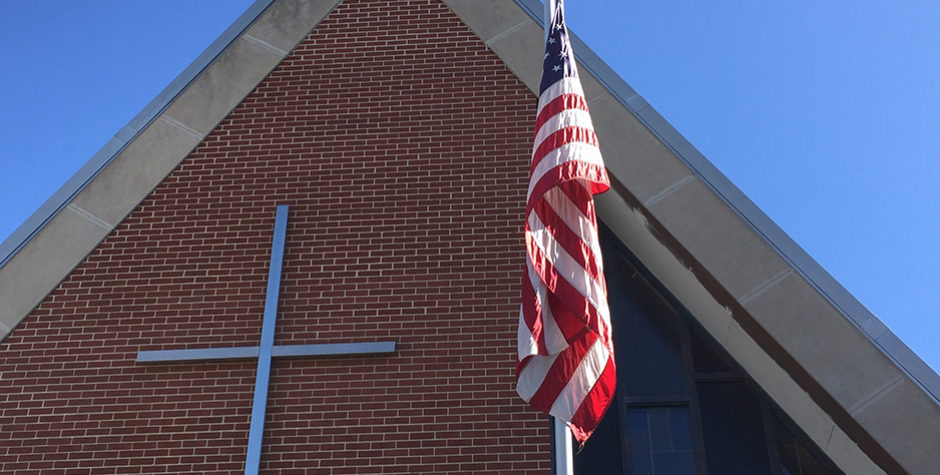UPDATED: Can the Government Close Churches in Response to an Epidemic?
In light of the current Coronavirus (COVID-19) pandemic, many states and localities are taking aggressive measures to combat the spread of the virus. Some of these measures include recommendations or mandates banning all large gatherings, including church services and activities. These actions have naturally led to some concern about church closures and the Constitution. At the ACLJ, we are monitoring the situation.
Normally the notion of government agents shutting churches down would trigger immediate strong concerns about breaches of religious liberty. And, of course, if churches are singled out for such hostile treatment, this would be a textbook violation of the First Amendment’s Free Exercise Clause.
This does not mean, however, that churches are entitled to a special exemption to public safety measures that are applied evenhandedly. For example, if police are chasing a robber, they can pursue the robber in a church parking lot as much as in a grocery store parking lot. This is different from police disregarding only church property rights. If firefighters need to cut down trees to halt a spreading fire, trees on the grounds of a place of worship, a private business, and a residence are all liable to be taken down. Likewise, if a disease epidemic requires imposition of a curfew, or quarantine, or prohibition of large gatherings, this can be legitimate so long as there is no unfairness in the government’s treatment of religious institutions and persons.
The watchword here is neutrality: Is the government being neutral toward religion, or is the government instead imposing special burdens on religion and its adherents? For example, in a case filed just the week before Easter, a court held that a local city’s regulations banning church drive-in services was “beyond all question” a violation of the Free Exercise Clause. The church filed suit after the Mayor “ordered Christians not to attend Sunday services, even if they remained in their cars to worship.” The court held that Louisville had “targeted religious worship by prohibiting drive-in church services, while not prohibiting a multitude of other non-religious drive-ins and drive-throughs – including, for example, drive-through liquor stores.” Louisville’s regulation, the court concluded, was “not neutral between religious and non-religious conduct, with orders and threats that are not ‘generally applicable’ to both religious and non-religious conduct.”
So long as the government maintains a neutral approach, addresses an objectively serious threat, and does not use that threat as a pretext for targeting disfavored religious entities and adherents, then churches, synagogues, mosques, and other religious bodies cannot claim unconstitutional discrimination.
We’ve litigated many of these religious liberty and free speech cases at the Supreme Court over the years and can tell you that narrowly tailored, time, place, and manner restrictions, when done in the face of a legitimate state interest such as the safety of the public as we see here, are typically upheld as constitutional.
That said, a prohibition on public gatherings is a pretty drastic measure, one that naturally raises concerns and comparisons to the actions of totalitarian regimes past and present. It is incumbent upon the government to reserve such strong medicine for genuinely serious dangers, and to lift those restrictions as soon as the threat has passed.
Also, different – and stricter – rules apply to the federal government on this score. While state and local governments can neutrally apply safety measures to churches, the federal government must meet a higher standard under the Religious Freedom Restoration Act (RFRA). If the federal action imposes a substantial burden on religious exercise – and closing churches certainly would do so – then the federal government must prove that it acts to further a compelling interest and is taking the least restrictive means to further that interest. (Some states also provide similar extra protection for religion under their own constitutions and statutes.)
In this situation, the premises are that the Coronavirus poses a severe threat to public health and safety, the remedial measures are temporary, and they are being enforced at the state and local level (remember the federal guidelines are merely recommendations at this point). Churches are actively involved in the process and finding unique ways to provide church services online and through other means. Churches are working with state and local officials to minister to their communities and are committed across the board to not only the spiritual health but also the physical health of their members. This coming together of community is a key part of the fight to stop the spread of this pandemic, and we are encouraged to see how churches are engaging this important issue.
At the ACLJ, we will continue to closely monitor this situation. If you believe that your rights have been violated by something that goes beyond these measures in an extreme way or that your church has been specifically targeted in a way that does not apply equally to other gatherings, please contact us at ACLJ.org/HELP. That is what we are here for.
This post was updated April 21, 2020 to provide you the most current information.
